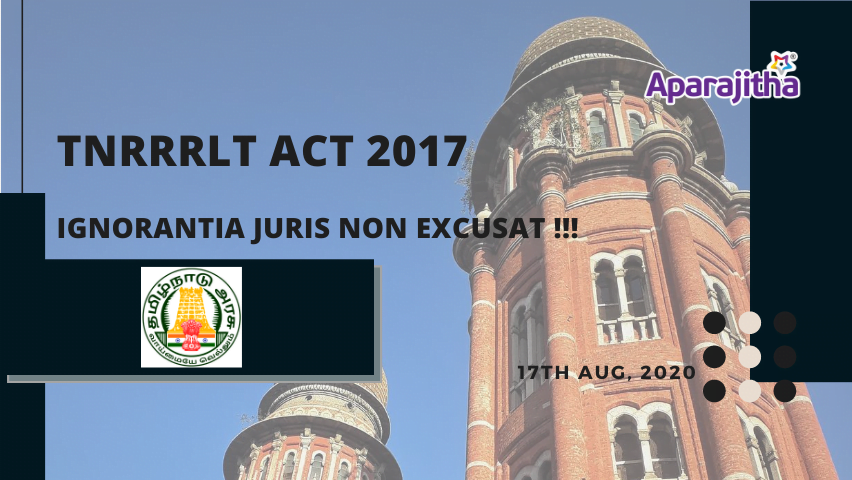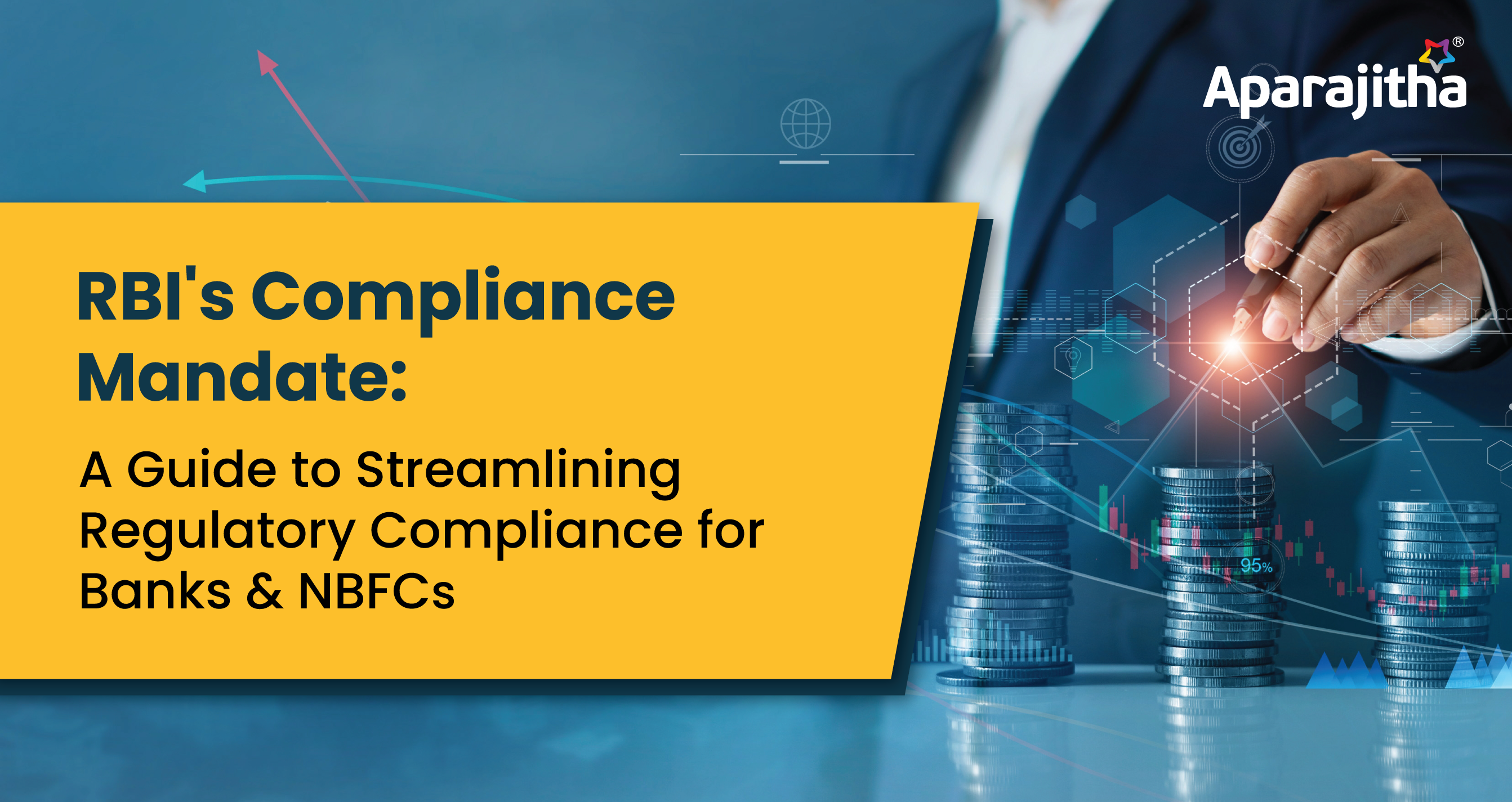The Government of Tamil Nadu, in their efforts to balance the rights and responsibilities of landlord and tenant and to regulate rent and to provide fast adjudication, has enforced a new tenancy Act called “The Tamil Nadu Regulation of Rights and Responsibilities of Landlords and Tenants Act 2017”with effect from 22nd February 2019. This is in lieu of Tamil Nadu Buildings (Lease and Rent Control) Act, 1960 and is based on model tenancy Act suggested by Government of India.
Applicability: Tenancies in Urban areas of Tamil Nadu
- Residential Tenancies
- Commercial Tenancies including the premises used for educational purposes.
Non – Applicability:
- Premises registered under the Factories Act, 1948
- Any government bodies
- Accommodation offers by any company to its employees as part of service contract
- Notified religious and charitable institutions
- Trust registered under Trust Act and
- Waqf Property
Competent Authority: Rent Authority, Rent Court and Rent Tribunal
The suo-motu application for registration can be applied online at www.tenancy.tn.gov.in. Before the commencement of this Act, if there is any oral tenancy relationship, it should be executed as written agreement and registered with the authority within 575 days from the date of commencement of this Act i.e., 18th September’ 2020. After the commencement of this Act, any new agreement entered should be registered within 90 days from the date of execution.
Gist of the Act:
- Mandatory Registration of Tenancy Agreement: It is mandatory to register all rental agreements with the Rent Authority irrespective of period of execution, term and value of tenancy. The registration of tenancy agreement under the Registration Act, 1908 is independent of the Registration required under this
- Fixed Period of Tenancy: If a tenancy for a fixed term ends and has not been renewed or the premises have not been vacated by the tenant at the end of tenancy, it shall be deemed to be renewed on a month-to-month basis on the same terms and conditions as were in the expired tenancy agreement, for a maximum period of 6 months.
- Issuance of Original signed Tenancy agreement: The Landlords shall give 1 original signed and registered agreement to the tenant within 15 days from the date of registration of the agreement with the Rent Authority.
- Intimation of Revision in Rent: In case of tenancies entered into before the commencement of this Act, after the expiry of 12 months from the commencement of this Act, the Landlord shall intimate the tenant 2 months prior to the expiry of the 12 months about the revision in rent.
- Deemed acceptance of Revision in Rent: Save as agreed in agreement, if a tenant who has received notice of an intended increase of rent from landlord in writing 3 months before the revised rent becomes due, if tenant fails to give the landlord notice of termination of tenancy, the tenant shall be deemed to have accepted whatever rent increase has been proposed by the landlord.
- Restriction on Amount of Security Deposits: As per new tenancy Act only 3 months rents can be collected as security deposits. It shall be refunded within 1 month from the vacation of premises. In case of arrears of security deposits, the tenant is entitled 8 percent interest.
- Issuance of written receipt: The landlord or property manager should give signed written receipts for the rent paid by the If the rent have been paid through electronic medium, then bank acknowledgment is treated as proof.
- Restriction on Sub Letting: Prior written consent from the landlord should be obtained before subletting the premises and the subletting rent should not be more than the principal rent. New Tenancy Act treats sub-letting as new tenancy and it should be registered De Novo with the Rent authority.
- Deposit of Rent with Rent Authority: Where the landlord does not accept any rent and other charges payable or refuses to give a receipt, the rent and other charges shall be sent to the landlord by postal money order or any other method as may be prescribed consecutively for 2 months, and if the landlord does not accept the rent and other charges within the said period, then, the tenant shall deposit the same with the Rent authority.
- Forfeiture of Rent deposited with Rent Authority: Any rent and charges not withdrawn for 5 years by any person entitled to withdraw shall be forfeited by the Government.
- Repairs & Maintenance of Property: The Tenant’s refusal to carry out the scheduled or agreed repairs, the landlord shall get the repairs done and deduct the amount from the security deposit and if the landlord refuses to carry out the scheduled or agreed repairs, the tenant can get the work done and deduct the same from monthly rent.
- Default in Rent payment: Tenants failing to pay rent for 2 months can be evicted. Landlord is entitled to double the rent if tenant fails to vacate the premises after the termination of tenancy agreements. Delay in payment of rent entitles the landlord to get 8 percent of interest.
- Succession :In case of death of tenant, the right of succession is based on class 1 heirs of inheritance i.e., spouse, son/daughter/widow of predeceased son, parents subject to the condition that they had been working / living at the same premises till the death of tenant.
- Permission to Enter the Rented Premises: A landlord or the property manager may enter a premises in accordance with written notice given to the tenant at least 24 hours before the time of entry under the prescribed circumstances. The written notice shall specify the reason for entry, the day and time of entry which shall be between 7.00 A.M. and 8.00 M.
- Effect of Non Registration: In case of any disputes among landlord and tenant, they cannot initiate the suit in the tribunal since the registration of agreement is the only nature of evidence. The new Act is silent about the other penalties.
Views of the Author: Even though this legislation got introduced a year ago, the awareness of The Tamil Nadu Regulation of Rights and Responsibilities of Landlords and Tenants Act, 2017, and its provisions are not there among common public and the corporates. As per the legal maxim “Ignorantia Juris Non Excusat” meaning “Ignorance of the law is no excuse” one cannot take shelter under his ignorance of any such legislation. In other words, a person who is unaware of a law of the land may not escape liability for violating that law merely because he/she was unaware of its content. Hence this article aims to bring awareness among the common public and the corporates about the existence of such laws which are having much impact in routine life.
Aparajitha is a preferred compliance partner to 1500 plus privileged customers, Pan India. We are committed to assisting our clients to be compliant in their Regulatory compliance issues, with our high quality of service, to support them to focus on their organization growth. We keep them updated with continuous changes and amendments in Compliance Regulations and Acts.
To keep yourself updated with knowledge and news related to statutory compliances, kindly subscribe to our news bulletin.
Shivadharini. SNS
Aparajitha Corporate Services
Disclaimer: The article represents the opinions of the author and the author is solely responsible for the facts, cases, legal or otherwise reproduced in the article.




